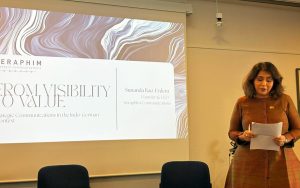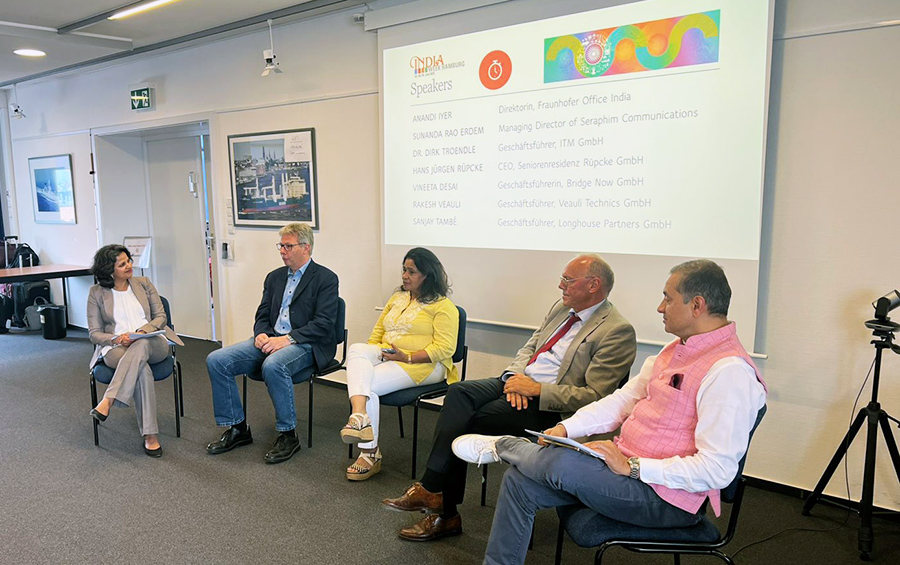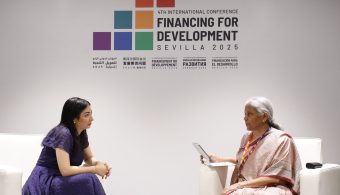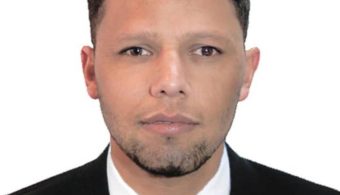HAMBURG, June 27, 2025: At the recently completed India Week Hamburg, a high-level dialogue titled “Positioning Partnerships: How Communication Shapes Indo-German Engagement” brought together a cross-section of leaders, innovators, and communicators from both countries. Hosted at the Hamburg Ministry for Economy and Innovation, the event spotlighted a crucial, often underestimated pillar of international cooperation — strategic communication.
The session opened with welcome remarks by Mr. Rakesh Veauli, Managing Director of Veauli Techniks GmbH, who set the tone by underscoring the importance of trust and long-term thinking in business relationships. This was followed by short but impactful addresses by the Guests of Honour: Mr. Roy, Vice Consul General of India in Hamburg; Mr. Hauke Brauer, Director, International Services at Wirtschaftsförderung und Technologietransfer Schleswig-Holstein; and Ms. Britta Puchert, Asia Desk Officer, Ministry of Economy, Transport and Innovation, Hamburg.
From Glass Vials to Grand Narratives

Delivering the keynote, Sunanda Rao Erdem, Founder and CEO of Seraphim Communications, spoke about how it is important to adapt to the target market in ways that have a recall value.
“In India, it’s not enough to be excellent. You also have to be understood,” she told the audience of diplomats, corporate leaders, and policy experts.
Drawing on over two decades of Indo-German engagement, Rao Erdem argued that communication must be seen not as decoration, but as infrastructure — a strategic tool that determines how intentions are perceived, policies are embraced, and partnerships are remembered.
Shifting the Narrative, Shaping the Outcome
The session covered several blind spots in cross-cultural communication. While Germany is admired in India for its engineering excellence and education system, it often comes across as distant or too formal. Conversely, Indian creativity and agility are sometimes reduced to tropes like yoga or jugaad. These stereotypes, Rao Erdem said, “block real engagement.”
She also highlighted communication mismatches — India’s emotionally driven, mobile-first media ecosystem versus Germany’s preference for textual, structured messaging — and urged for “transcreation, not just translation.”
“MoUs and long press releases don’t speak for themselves. Without local narratives and relevance, they dissolve into lengthy documents no one reads.”
The Panel: Where Insight Met Action
Moderated by Mr. Sanjay Tambe, Managing Director of Longhouse Partners GmbH, and Ms. Vineeta Desai, Managing Director of Bridge Now GmbH, the subsequent panel brought together practitioners with deep experience in building Indo-German bridges:
- Ms. Anandi Iyer, Director, Fraunhofer Office India and Founder, German Innovation Forum in India
- Dr. Dirk Troendle, Managing Director, ITM-Investment Trade Marketing GmbH
- Mr. Hans Jürgen Rüpcke, Managing Director & CEO, Seniorenresidenz Rüpcke GmbH
Each speaker shared how communication challenges and successes had shaped their work.
Anandi Iyer emphasized the importance of trust, setting clear expectations, and understanding cultural differences as key elements in research and innovation collaboration.
Dr. Troendle spoke about the need to engage with India on a long-term basis, highlighting that creating sustainable partnerships through clear communication and mutual understanding has helped him establish strong professional networks in India.
Mr. Rüpcke offered a unique perspective from the elder care sector, stressing the need for a system to train young people in the medical support field in Germany through practical training and then absorb them into the workforce. He noted that young Indian paramedical professionals have excellent aptitude and attitude for this profession.
What united their perspectives was a simple truth: strategy without story falls flat.
A Playbook for Belonging
The dialogue closed with a collective affirmation: communication is not the final step in Indo-German engagement — it is the first.
“Germany must not just be in India — it must belong,” said Rao Erdem in her closing remarks. “And communication is how we move from presence to participation, from translation to transformation.”
As the Indo-German relationship enters a new phase of mutual opportunity — spanning green hydrogen, mobility, research, and education — this Hamburg dialogue was a timely reminder that success in these fields will depend not only on policy frameworks and financial flows, but on the narratives we shape and the trust we build.
About India Week Hamburg 2025
India Week Hamburg 2025 transformed the city into a vibrant hub of Indo-German collaboration from June 23 to 29, featuring over 70 events spanning business, culture, society, and knowledge. The week opened with a high-level Senate Reception at Hamburg City Hall, where Indian Ambassador Ajit Gupte, German Ambassador Philipp Ackermann, and renowned actress Shabana Azmi delivered keynote addresses. Highlights included the Hamburg India Business Day co-hosted by the Indo-German Chamber of Commerce, a German-Indian Innovation Night focused on AI and tech startups, and the Curry and Culture – India Food Fest, which brought Indian cuisine, music, and dance to the fore. Institutions like DESY offered tours showcasing scientific collaborations, while workshops explored topics such as sustainable mobility, women in green jobs, legal reforms, and the role of SMEs in fostering Indo-German partnerships.
These events highlighted growing engagement between India and Germany across sectors. In this context, the Hamburg dialogue on communication reinforced that strong narratives and trust are essential for building lasting partnerships.



